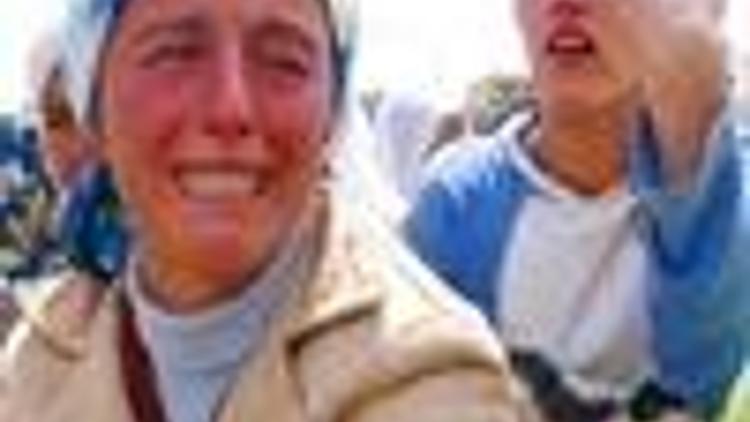Reason for Turkish village attack much deeper than first appeared
Güncelleme Tarihi:

İZMİR - The massacre of 44 people seemingly by relatives is an anomaly even in a region dominated by the unwritten laws of tradition, decades-long blood feuds and a feudal social structure that victimizes women, according to a specialist on the region.
"What happened in Mazıdağı, Mardin, is a massacre. It is not amenable to customs and rules of clans and blood feuds," Associate Professor Rüstem Erkan, head of Diyarbakır Dicle University’s sociology department, told the Hürriyet Daily News & Economic Review.
Erkan said contrary to outsiders’ perceptions, blood feuds, despite the despicable results, have rules everyone obeys. "According to customs, you cannot do something like this at funerals or weddings. This region has never seen such a thing. They did not regard the rules when they did this. They did not pay attention to who they killed," he said. Erkan, who has extensively studied the region’s socioeconomic structure, said this case was not a classic blood feud case. "This is a slaughter. It is not a classic blood feud case," he said.
"This is an ’Iraqization.’ In Iraq, they explode the bomb without caring who they kill. In this case, I think they disregarded their customs, they just slaughtered the people there," he said.�
The crime is also linked to the prevalent use of weapons in the region, he said. "Getting a hold of a Kalashnikov rifle in the region is very easy. Life is under the shadow of Kalashnikov here. The village guard system is very problematic. Village guards can easily go on violating weapons laws. If these people that killed 44 people in Mazıdağı used village guards’ guns, I mean, if they committed this massacre with guns the state gave them, it would be time to reconsider the village guard system," Erkan said.
Basis of many problems
Erkan said the situation was confusing as the murderers and murdered came from the same family. "The traditional structure and clan [aşiret in Turkish] system is the basis of many of the problems in the region. On the other hand, economy, politics and religious communities are under the control of clans," he said.
"The most important reason why blood feuds are widespread in southeastern Turkey is the domination of clans in the region. Clans are small groups of people bound to each other by blood and the feeling of unity.
Clan members have a low level of education and culture, and they always prefer to be under the domination of a leader. In clans, the status of a person comes from birth and obeying authority and elderly persons is absolute.
And unity in a case of assault and defense is a must. Consequently, this mechanism is an important factor increasing the number of blood feuds and violence," he said.
Half a million involved in blood feuds
There are more than 250 clans in the region, according to research Erkan conducted last year from talking to 2,170 families to define the region’s socioeconomic structure.
According to his study, there were 50 clans in Adıyaman, 21 in Diyarbakır, 21 in Gaziantep-Kilis, 66 in Mardin, 37 in Siirt and 83 in Şamlıurfa.
His study revealed 23.1 percent of the people in the region belong to one clan or another.
The highest clan membership was in Şanlıurfa with 42.3 percent and Mardin with 36.2 percent. The lowest clan membership was 4.6 percent in Kilis and 4.2 percent in Gaziantep.
The study also revealed that there were around half a million people involved in blood feuds in the region, which has a population of around 10 million. The highest number of blood feuds was seen in Şanlıurfa, which also shows that there is a direct relation between clans and blood feuds.
According to the research, 3.1 percent of people in the region are involved in blood feuds. The highest percent of people involved in blood feuds was in Şanlıurfa with 5.6 percent.
It was followed by Mardin with 4.7 percent, Şınak with 4.3 percent and Batman with 4.1 percent.

